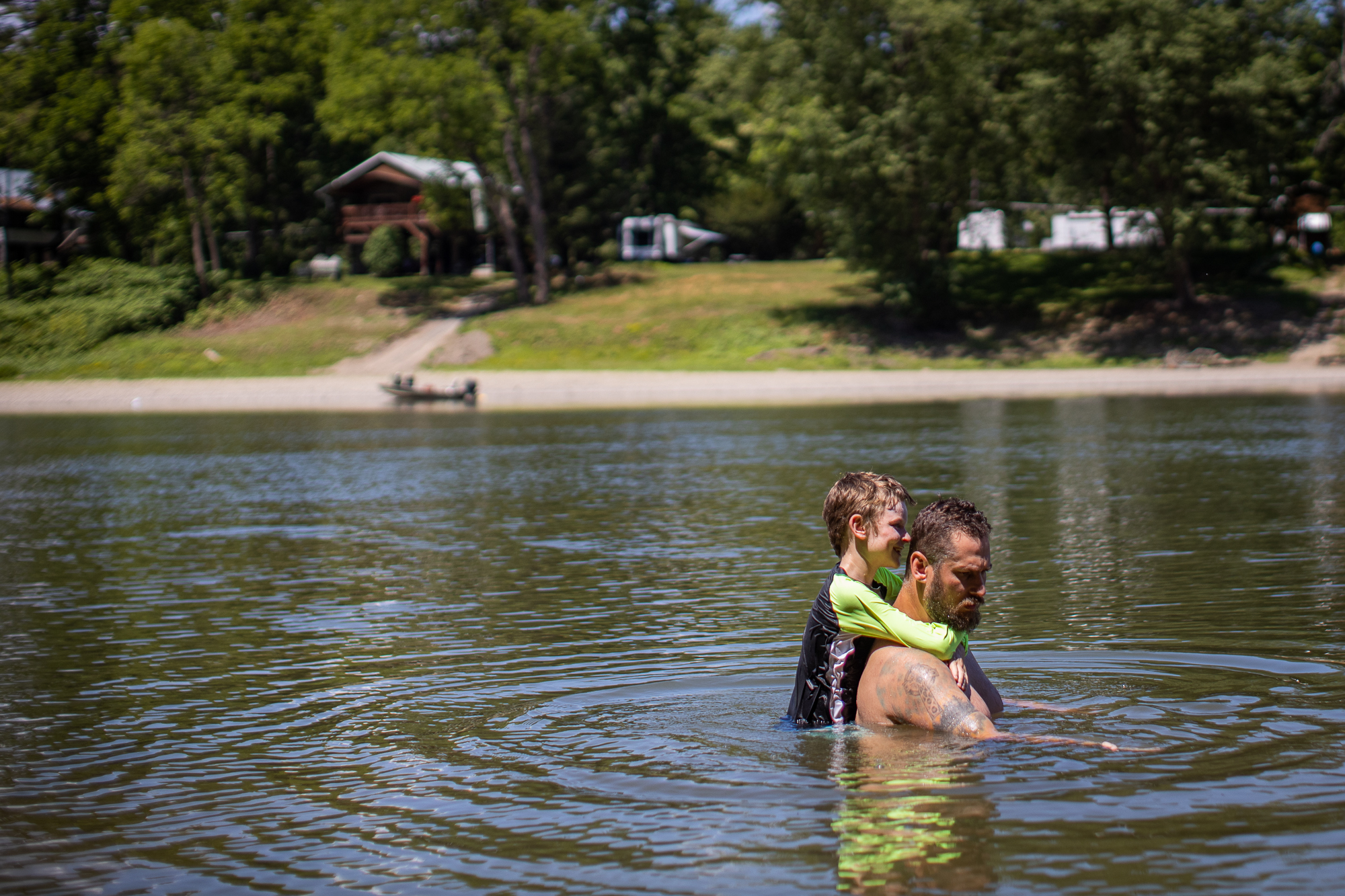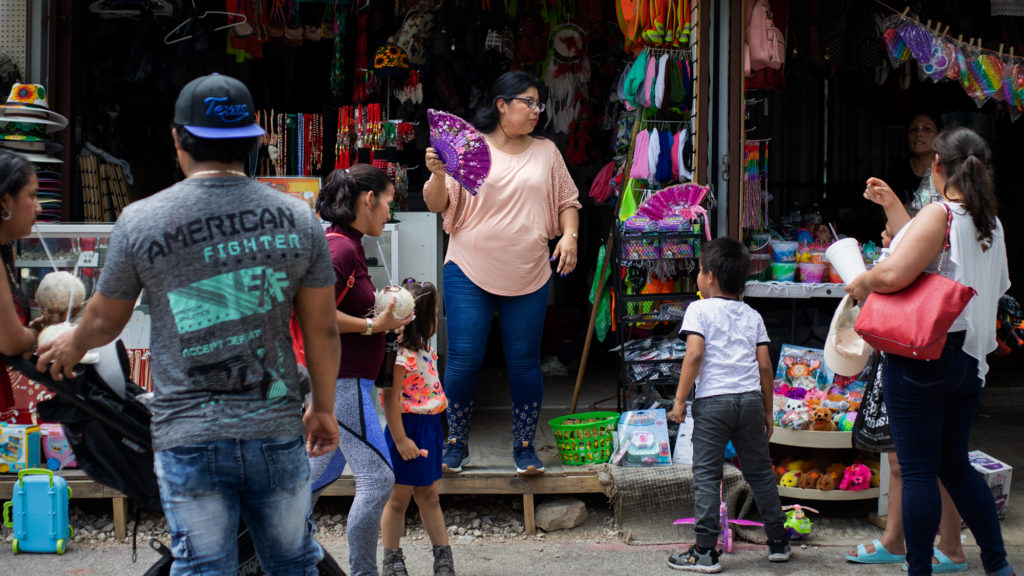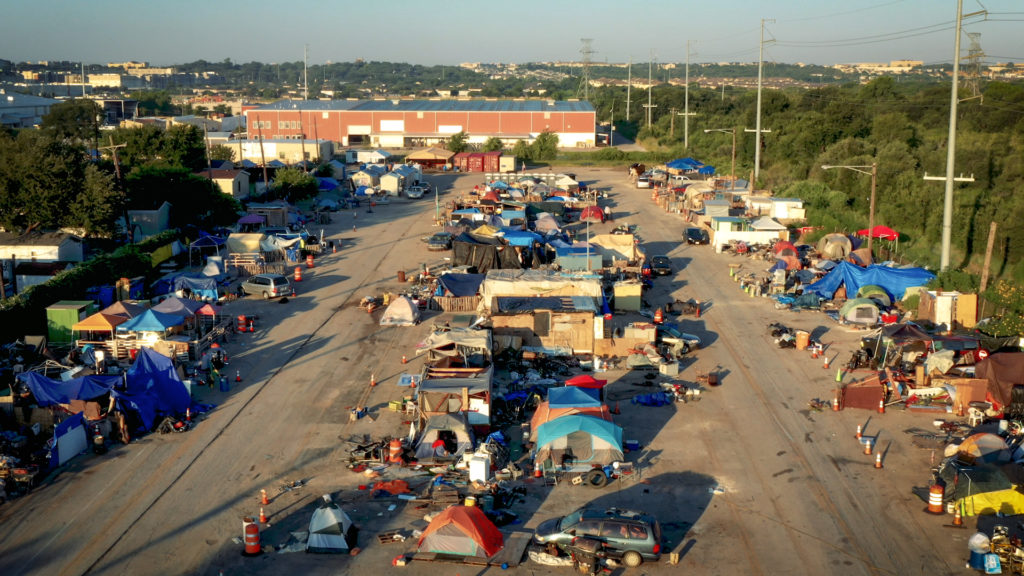For the first time in more than a year, Walter Bosak slept through the night. It happened in June, while camping with his son in a tent along the Susquehanna River. For a combat veteran with post-traumatic stress disorder, that kind of peace can be tough to come by.
“It’s so big.” Bosak said. “It’s truly feeling like everything is taken off of you. It’s like being in a boiler room in twelve layers of clothes and you finally get stripped all the way down.”
His restful night came after a full day of kayaking, fishing, and socializing with other veterans on the river in rural Wyoming County, Pennsylvania. The four-day trip was organized by Hunts for Healing, an all-volunteer nonprofit founded in 2009 to provide free outdoor experiences for wounded veterans.
“We bring folks in from all over the country, and there’s no cost to the individual. Basically, all we ask is that they show up and enjoy themselves,” said Larry White, a volunteer and past president of the organization. “In the military, we took care of our troops. This is a continuation of that mission. That’s what we’re all put on this Earth for, to take care of one another.”
Event participants like Bosak are paired with mentors – other veterans who, in many cases, attended previous events as participants themselves. Over the course of several days, they bond over their experiences as veterans, and learn new skills and hobbies, like fly-fishing, kayaking, and hunting with a black powder flintlock rifle.
The river trip was James Haitsch’s second event with Hunts for Healing. He served in the Navy for 17 years and was wounded by an improvised explosive device during his last deployment. He’s been diagnosed with PTSD and traumatic brain injury, and said these excursions provide rare moments of respite.
“I think connecting with nature helps you get grounded and more centered, and helps you to be more at ease,” Haitsch said. “It helps you see that there’s more to life than just your horrific events. It’s very therapeutic.”
The ultimate goal of all the events is to create a sense of community and a safe zone where veterans can talk through potentially challenging topics.
“The activity is really just the hook to get these soldiers here. We work by getting them out of their room,” said Pete Hatton, president of Hunts for Healing. “Veterans are different from civilians, and combat veterans are vastly different than civilians. What happens a lot of times is that they’ll isolate. They’re no longer with their troops, and they feel cut off. They turn to alcohol, they turn to pills, they vegetate, and they end up shooting themselves.”
On average, approximately 17 military veterans committed suicide per day in 2017, according to a U.S. Department of Veterans Affairs (VA) report released last year. Veterans accounted for 13.5 percent of all suicide deaths in the country, while comprising just under 8 percent of the total population.
The highest rate of suicide was found in veterans aged 18 to 34, according to the study, and veterans diagnosed with conditions like traumatic brain injury and PTSD are more likely to commit suicide.
Many veterans experiencing psychological symptoms after military service turn to the VA for support, and this is where many veterans who attend Hunts for Healing events first learn about the program.
“I personally believe that a lot of folks go the route where they might take their life because they feel alone and there’s nobody they can talk to,” White said. “We want them to know that they’re not alone. When they feel like there’s somebody in their corner, they’re more willing to hold on.”
During his service in the Army, White befriended a fellow soldier named Rebekah Hasselman. A few years later, he was back home, working with Hunts for Healing to plan its first family camping event. In search of volunteers, he reached out to Hasselman, who had recently returned from her deployment to Iraq.
At first, she resisted and made excuses for not being able to come, but White persisted until she changed her mind.
“Larry asking me to come help saved my life,” Hasselman said. “Because it helped me come out of my shell that year, and I was really locked away. Coming back from a war zone, you don’t know how to live anymore. Society is not your normal, your war zone is your normal.”
For her, adjusting to life back home was about finding the right balance between taking time for herself and not isolating too much. Finding people who know how to listen – and what not to say – was also important.
“When you get introduced back to civilian life, your family just wants you to be like you were when you left, but you’re not,” she said. “The biggest question I got asked when I came home was, ‘How many people did you kill?’ That is one thing you should never ask a veteran.”
Hasselman, who is now a long-time mentor for Hunts for Healing, was Bosak’s mentor during this river trip. He said spending time around other veterans has been an important part of coping with his PTSD.
“I have friends who I love dearly, but they’ll never understand what we’ve been through,” Bosak said. “It’s reassuring for me to come to a place like this and see people who are going through the same struggles I am and dealing with things. I don’t want to say it normalizes it, but it’s easier to open up in this environment.”
Sitting around after dinner on the first night of the river trip, Bosak and several others began talking about some of their triggers for PTSD, like unexpected loud noises and fireworks explosions, as well as specific odors.
“When I get that burning trash smell – if that hits me, it takes me right back in a heartbeat,” Bosak said. “I can see everything.”
Bosak was 26-years-old when he returned home from Iraq and got out of the military in 2006. He soon found himself struggling with symptoms of PTSD, but didn’t seek help until 2010.
“It took a lot of time, and a lot of two steps forward, one step back. You’re looking at yourself and you’re relatively healthy and you have all your fingers and toes, and so you feel like you should feel like one of the lucky ones. And you try to tell yourself, ‘just put it behind you. It’s over. It was 13 months of your life. It’s not the end all be all of your existence,’” Bosak said. “But you get stuck. It’s like trying to run in mud.”
Since first seeking help, Bosak has become more outspoken about his experiences in the hopes that it will increase understanding among other veterans and civilians, including his nine-year-old son, Finneus, who came along on the river trip.
Each night after the sun went down, Finneus sat by the campfire with his dad and the other veterans as they traded stories – and plenty of good-natured ribbing – for hours until the fire died down and it was time for sleep. Finneus occasionally asked questions, but mostly just listened.
“It’s important for him to see the after-effects of service and what community really looks like,” Bosak said. “There’s so many different ways to help people in this world, and that’s what I want him to see.”












